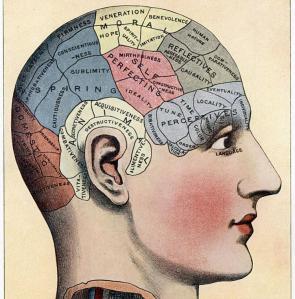Memories. Day 1. The rites of passage.
Do we have any memories before we are two years old? Or is it the stories we hear of our childhood that remain in our minds as false memories? Whatever the source, the boy had memories from his early childhood.
The house with red cement floors, the very high ceiling, the vast veranda. He realised later that dimensions get expanded in childhood, size is relative. The perspective of a child is from closer to the floor. On visiting some of his childhood homes in adult life, he noticed how they had shrunk.
But going back to his memories; He remembered cycle rickshaws, a canal, a white domed building which he now realises was a mosque, and weird wailings, which he now knows was the call for prayers, the Azaan. He remembers the white car his father had, the parties at home, and most of all, his babysitter cum life coach, Eda.
Unusually for those times, Eda was literate, and before the advent of television, kept him quiet by reading to him. It was not nursery rhymes or bed time stories, but whatever was available. It could be newspapers, classics, penny dreadful, mushy romances, religious texts, poems, and just about anything printed in the vernacular and available. Both the boy’s parents being avid readers and cultured people, there was no dearth of reading matter. The boy loved the sonorous rhythms of the epic Mahabharata, set in rhyme, in an archaic language, and whole passages would remain in his memory.
When called in to the drawing room to be presented to guests, and asked to recite rhymes, the boy would sometimes lisp off passages from the epic. Not knowing what the boy was spouting, and hearing an ancient language, a rumour spread that the kid had memories of past lives.
The other by-product of this early indiscriminate indoctrination into literature was the boy’s lifelong passion for stories, reading them, telling them, hearing them, watching them and even trying to write them. He grew addicted to strange tales of magic and mystery, history and mythology. The printed word held him in its grip, and the sound of language fascinated him. Words were his music.
They stayed in a small town in a relatively backward state in Eastern India, where the boy’s father was a big man and owned a car, one of the very few in that town. His father was very affectionate, but was a very busy man, and travelled a great deal. The boy’s mother was a talented extroverted soul, very demonstrative in her affections. She was a talented musician and organised many cultural events and musical soirees. She was largely occupied in her cultural pursuits; so that the boy’s closest companions were his babysitter, and the Chauffer, Taji. Taji was the boys version of Murtaza Hussain, the chauffer’s name, and too much of a mouthful for the child. The origins of the nickname Eda is lost in the mists of time.
Taji had only one story to tell, about three idiots, but he told it well. In fact, when the boy had grown up and had children of his own, Taji had come to meet them and repeated the story for another generation, adding that the three idiots were the boy and his two brothers.
But we digress. Memories have this curious habit; they don’t behave in an ordinary linear fashion. They have no respect for chronology. They keep leaping across time and space. I cannot decide whether to bring the boys memories in line by the scruff of their neck or let them ramble and leap around with unbridled abandon. I think I will try Buddha’s Golden Mean. Forget chronology but try to maintain some semblance of order by linking topics somehow as the memories jostle each other for attention.
Eda and Taji pushed the memory in fast forward by a dozen years or so, to the boy’s sacred thread ceremony. The boy having been born into the allegedly privileged caste of the twice born, had to pass a rite of initiation at the age of fourteen, as he is about to enter manhood, called the Upanayana. This ceremony is supposed to be a rebirth, thus the twice born, and gives him the right to wear the sacred thread. He is initiated into the prayers, rituals and mantras that are the exclusive privilege of the Brahmins. The ceremony lasts three days, when he is interred in a room and conducts life in strict Bramhacharya principles, rising at dawn, eating one meal a day either self cooked Vedic food or fruits, meditating, praying, studying and collecting alms from the visitors. In reality he read the numerous books he had received as gifts or ‘alms’. The boy had especially asked for books. The kind of alms that the visitors bring would make any mendicant leap with joy, as it involved wads of cash, watches, clothes, electronic gadgets, gift cheques and such stuff. The alms giving guests are treated to a feast which is far from Sattwik, and involves mutton and fish. The boy is disgruntled, but is promised a grand treat after the three days.
Among his guests are his two childhood mentors, Eda and Taji. They had come to meet their old ward at considerable effort and expense, taking leave from their current jobs. The boy was eager to meet them. But there was a hitch. During these three days, he was not permitted to lay eyes on any non Brahmin person. Not even the Sun is allowed in as the Sun god is Kshatria. And here there was a Shudra and a Muslim seeking audience with the young Brahmachari. This was an abomination. The elders and relatives would have none of this sacrilege. The boy was crestfallen. But he had a staunch supporter, his rationalist and strong willed father. He decreed that the two ex employees would meet the boy, and those who did not like it could lump it.
The matter was referred to the family priest who was conducting the ceremony. He had already developed a rapport with the boy, who was curious about the meanings and significance of the rituals and prayers. The priest had been patiently explaining everything to the boy.
The priest gave his verdict. A Brahmin is he who gives rise to good thoughts in the boys mind. It cannot be decided by an accident of birth. These people have taught the boy in his childhood, and as Gurus, played the role of a Brahmin. They would visit him.
The impasse was cleared in what was in those days a revolutionary decision. It taught the boy rationality and compassion, and gave him the confidence to question given wisdom. It also taught him that every priest is not a hidebound conservative and religious fanatic as his leftist friends claimed. Rationality and intelligence are not anyone’s sole preserve. The boy truly grew up that day.
- Comment
- Reblog
-
Subscribe
Subscribed
Already have a WordPress.com account? Log in now.


Excellent. Enjoyed it.
LikeLiked by 1 person
Thanks. Please stay with us through the coming chapters 😊
LikeLiked by 1 person
Interesting perspective with a powerful message. Enjoyed the depiction. Will catch up on other chapters soon.
LikeLiked by 1 person
Thanks Vishal :). Please stay with me through the coming chapters. Will try not to bore you 😀
LikeLike
I am sure you will not. I will make up for the gap and keep reading:)
LikeLike
Nice. I like priest’s message 🙂
LikeLiked by 1 person
Thanks Jyoti. 🙂 See if you like the rest
LikeLike
yep, reading them. wish you all the best for complete book
LikeLike
Engrossing read. Will see next chapters soon.
LikeLiked by 1 person
Thanks a million 😊mam. Please do. 20 out so far
LikeLike
Great! Enjoyed reading it.
LikeLiked by 1 person
Thanks. 😊 it means a lot
LikeLike
This is an example of finesse. i loved every word and rolled it around in my mind, toyed with it and only then swallowed. Lovely. Fell in love with Eda and Taji and developed a longing for that long verandah and the aam tree (though not mentioned, must have been there) and Bachchu, the stray dog who came by, sometimes wagging not just his tail but his whole scrawny behind, when he saw the little boy. Everything is just crystal clear to me. 😀
LikeLiked by 1 person
You have improved the story beyond recognition 😊 I am going to shamelessly steal it 😀 this is exactly what my toughest critics my kids tell me that my stories are first drafts or work in progress needing extensive reworking On 7 Feb 2016 19:51, “Idyll Dreams of an Idle Fellow” wrote:
>
LikeLiked by 1 person
Go right ahead, O Master! 😀
LikeLiked by 1 person
Eagerly waiting to hear what you think of the rest 😊
LikeLike